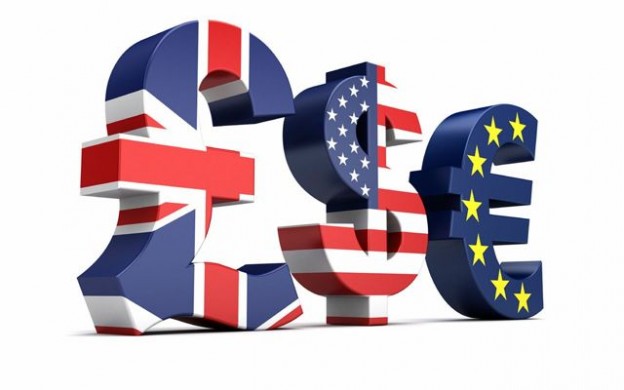After the financial meltdown of 2008 the majority of global central banks have slashed interest rates to near zero in addition to unprecedented stimulus plans guided by hope to revive their economies. In 2014 the British economy had a terrific start to the year and economists as well as forex traders were convinced that the Bank of England would hike interest rates in the second-half of 2015. This caused a very powerful rally in the British Pound.

As the second-half of 2014 unfolded and economic reports released out of the UK pointed towards a steep deceleration of the economy and as it became apparent that the Bank of England will leave interest rates unchanged at 0.50% the British Pound suffered from a combination of profit taking and new sell orders which reversed the sharp rally. The Bank of England remained on the sidelines which decreased confidence going forward.
During the first-half of 2015 forex traders were faced with a similar environment, but this time the US Federal Reserve was rumored to raise interest rates in the second-half of 2015. A string of labor reports released out of the United States have layered the US Federal Reserve in confidence to communicate an interest rate increase by the end of the year. The problem is that US Federal Reserve Chairwoman Yellen appears overly focused on the drop in the unemployment rate as well as headline figure which is creating a false image of the economy.
Statements made out of the US Federal Reserve suggest an interest rate increase from the current 0.25% which has contributed to an increase in bullishness in the US Dollar. As more and more forex traders expect the an interest rate increase out of the Fed, there has been new statements made by the Bank of England which suggested that interest rates in the UK could be lifted this years as well. This has created an interesting opportunity in the GBPUSD as forex traders have received comments about both central banks that there could be an increase in interest rates.
With the US economy in contraction during the last reported quarter and the UK economy trying to avoid more hardship, forex traders need to pay close attention to economic reports released over the next five months as any potential hike in interest rates is likely to occur during the last central bank meeting of the year. The most likely outcome given current information available would suggest no change in interest rates, but with each released major economic report more speculation about a potential change in monetary policy will stir more volatility in the British Pound as well as the US Dollar.
This can be compared to a battle between the Bank of England and the US Federal Reserve in another episode of currency wars, but this time the race will be to the upside. The risk of a premature interest rate increase to the economy should not be ignored and forex traders should pay close attention to speeches given by central bank officials, especially those with voting powers. The US Federal Reserve has already exited its quantitative easing program while the Bank of England has its quantitative easing program still in place. The second-half of 2015 will be an interesting one for the British Pound as well as for the US Dollar and the GBPUSD should be on everyone’s radar.
Market Analysis by www.goptions.com

 Hot Features
Hot Features













